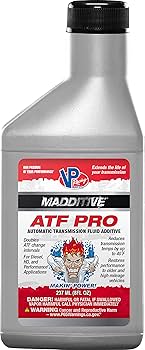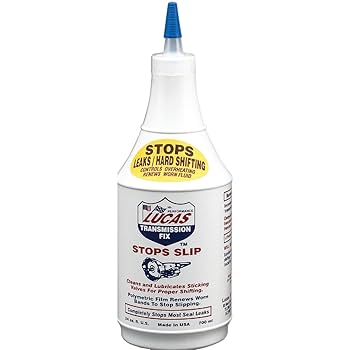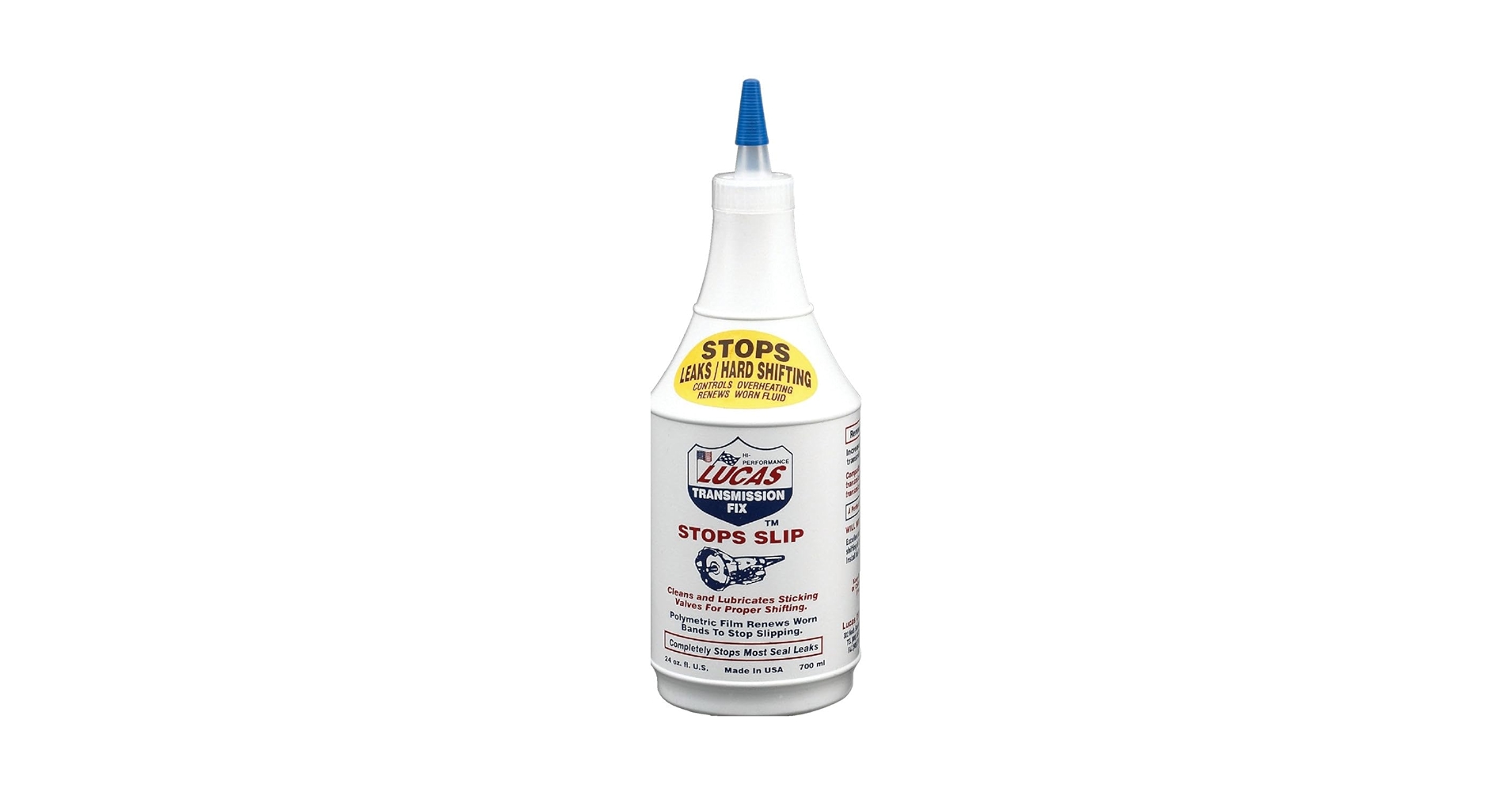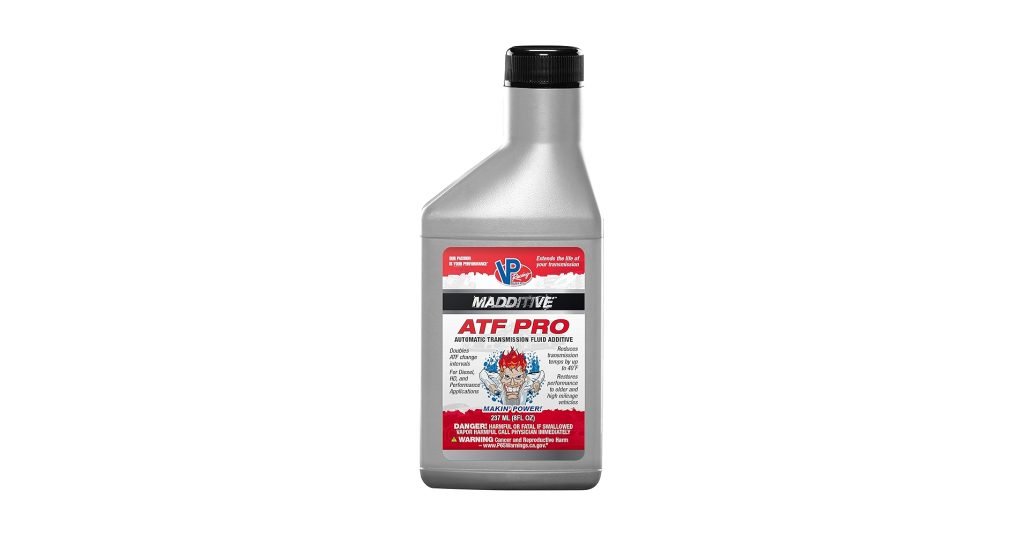Are transmission additives safe? Transmission additives can be safe if used as directed, but results vary. Some improve lubrication, reduce leaks, and smooth shifting, while others may cause damage if incompatible with your transmission. Always check your vehicle’s manual and use only manufacturer-approved additives to avoid costly repairs or warranty issues.
Are you wondering if transmission additives are safe for your vehicle? With so many products on the market promising to improve your car’s performance, it’s easy to feel unsure about what’s best for your transmission.
You want to protect your investment and avoid costly repairs, but how do you know if these additives really help or harm your transmission? You’ll discover the truth behind transmission additives, how they work, and whether using them is a smart choice for your car’s health.
Keep reading to make an informed decision that keeps your vehicle running smoothly.
Are Transmission Additives Safe?

Credit: www.amazon.com
Purpose Of Transmission Additives
Transmission additives serve an important role in keeping your vehicle’s transmission running smoothly. These additives mix with the transmission fluid to improve its properties and protect the transmission parts. They help reduce wear, prevent corrosion, and improve overall performance.
Using the right additives can extend the life of your transmission. They support better shifting and help avoid costly repairs. Understanding what these additives do can help you decide if they are right for your vehicle.
Common Types Of Additives
There are several common types of transmission additives available. Friction modifiers help improve the grip between moving parts. Anti-wear agents protect metal surfaces from damage. Seal conditioners keep seals flexible to prevent leaks. Detergents clean out deposits and sludge from the system. Each type targets a specific issue within the transmission.
How Additives Enhance Performance
Additives improve the transmission fluid’s ability to lubricate. Better lubrication means less friction and less heat. This helps parts move smoothly and reduces wear. Some additives also improve the fluid’s resistance to oxidation. This keeps the fluid stable for longer periods. They help maintain proper pressure for smooth shifting. Overall, additives support efficient and reliable transmission operation.

Credit: www.amazon.com
Potential Risks Of Additives
Transmission additives claim to improve gear shifting and extend transmission life. Still, they carry some risks that vehicle owners should know. Using the wrong additive or too much can cause damage. Understanding these risks helps you make safer choices for your car’s transmission system.
Chemical Composition Concerns
Some additives contain harsh chemicals that may harm transmission fluid. These chemicals can break down the fluid’s natural properties. This breakdown reduces lubrication and causes faster wear on parts. Certain additives may react with seal materials, causing leaks. Not all additives are tested for compatibility with every transmission type. Using an incompatible additive can lead to costly repairs.
Impact On Transmission Components
Transmission parts are delicate and need proper lubrication. Additives that change fluid thickness can affect this lubrication. Thicker fluids may cause poor flow, leading to overheating. Overheating damages gears and clutches inside the transmission. Some additives might cause deposits to build up on components. These deposits reduce efficiency and can cause slipping or hard shifting. Long-term use of harmful additives may shorten transmission life.
Expert Opinions On Safety
Experts have shared varied opinions on the safety of transmission additives. These views help vehicle owners decide if additives suit their needs. Understanding these opinions is key to making a safe choice.
Mechanic Perspectives
Many mechanics see transmission additives as useful in certain cases. They often recommend additives for older cars with worn parts. Some believe additives can improve shifting and reduce noise. Others warn that too much use may cause damage. Mechanics usually suggest following product instructions carefully. They stress that additives are not a fix for all transmission problems.
Manufacturer Guidelines
Car manufacturers provide clear advice on transmission care. Most do not officially endorse using aftermarket additives regularly. Some warn that additives may void vehicle warranties. Manufacturers recommend using only approved transmission fluids. They emphasize regular maintenance over relying on additives. Following these guidelines ensures the transmission works well and lasts longer.

Credit: www.amazon.com
Choosing The Right Additive
Choosing the right transmission additive matters for your vehicle’s health. The wrong product can cause damage or reduce performance. It pays to be careful and select an additive that fits your transmission needs. This guide helps you understand key points to consider before buying.
Compatibility With Transmission Types
Not all additives work with every transmission type. Automatic and manual transmissions have different needs. Some additives suit only automatic gearboxes, while others are made for manuals. Check your vehicle’s manual or label to know your transmission type. Choose an additive designed for that specific system. Using the wrong additive can cause slipping or poor shifting.
Quality And Certification Factors
High-quality additives protect and improve transmission parts. Look for products tested by industry organizations. Certifications show the additive meets safety and performance standards. Avoid cheap or unknown brands without clear labels. Quality additives reduce wear, prevent leaks, and keep your transmission running smoothly. Always pick certified products to ensure reliability and safety.
Best Practices For Using Additives
Using transmission additives can help improve your vehicle’s performance and extend the life of its transmission. Best practices are important to get the benefits without causing harm. Following clear steps ensures safe and effective use.
Proper Application Techniques
Always read the product label before use. Check if your vehicle’s transmission type matches the additive. Use the correct amount as stated on the instructions. Overuse can cause buildup and damage. Apply the additive when the engine is warm for better mixing. Pour additives directly into the transmission fluid reservoir or dipstick tube. Avoid spilling on engine parts to prevent damage. After adding, run the engine for a few minutes to circulate the additive fully.
Maintenance Tips To Avoid Damage
Change transmission fluid regularly as per manufacturer recommendations. Do not rely solely on additives to fix transmission problems. Keep your transmission system clean and free from contaminants. Monitor for leaks or unusual noises after use. Avoid mixing different brands of additives to prevent chemical conflicts. Consult a mechanic if unsure about using additives. Proper maintenance helps your transmission last longer and work smoothly.
Frequently Asked Questions
Are Transmission Additives Harmful To My Vehicle?
Transmission additives are generally safe when used as directed. Using the wrong type or too much can cause problems.
Can Transmission Additives Improve Shifting Performance?
Yes, some additives help reduce friction and wear, making shifts smoother and transmission parts last longer.
How Often Should I Use Transmission Additives?
Use transmission additives only as recommended by your vehicle’s manual or a trusted mechanic. Overuse can harm.
Conclusion
Transmission additives can help protect your vehicle’s system. They work best when used correctly and in the right amount. Always follow your car maker’s advice before adding anything. Poor-quality additives may cause problems rather than fix them. Regular maintenance and checks are important for smooth transmission health.
Choose trusted products if you decide to use additives. Stay informed and cautious to keep your transmission safe and running well.
Read More
- Best Additive for Sticky Valves to Boost Engine Performance and Longevity
- 5 Best Kodi Addons for Movies to Unlock Hidden Streaming Treasures
- 5 Best Additive Solutions for Sticky Engine Valves to Boost Performance
- 5 Best Transmission Additive for Shudder: Top Solutions to Stop Transmission Shakes
- 5 Best Transmission Additive for Hard Shifting: Top Solutions for Smooth Gears
- 5 Best Double-Sided Tape for Petg: Top Picks for Strong, Residue-Free Hold
- How Long Does Shudder Fixx Last? Ultimate Duration Guide Revealed

My name is Max langon and I am the founder of automothrone.com website. From this website, you will get automotive related information

